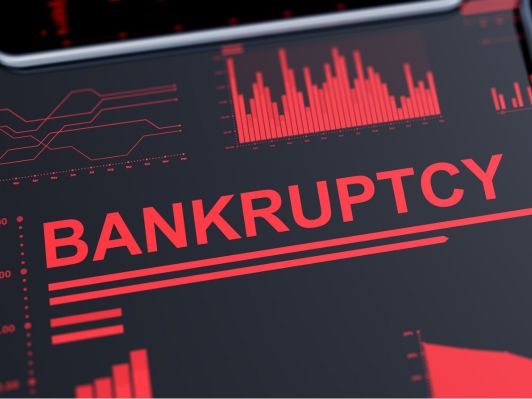Your credit score is a crucial factor in determining your creditworthiness and financial health. It provides lenders with an assessment of your credit risk. It can influence your ability to secure loans, credit cards, and favourable interest rates.
To understand how your credit score changes over time, it’s important to know how often it updates. In the United Kingdom, the frequency of credit score updates can vary depending on various factors.
In this article, we will explore how often is your credit score updated in the UK. We’ll provide insights into the factors that may affect the timing of updates. Understanding how often your credit score updates can help you monitor it. You can understand your creditworthiness and make informed financial decisions.
Table of Contents
How often does your credit score update in the UK?
It can take 4-6 weeks for your credit score to update on your file as credit bureaus. These bureaus are also known as credit reference agencies. They rely on information being provided by: lenders. Creditors. Or other financial institutions. The three main credit bureaus in the UK are Experian, Equifax, and TransUnion.
Credit bureaus consider factors like: payment history.Credit utilisation. Credit history length. Or credit mix to determine your credit score.
It’s important to note that not all lenders report to all credit agencies. This means the information used to calculate your credit score may differ between agencies.
How much can you expect your credit report to change?
The extent to which your credit report can change depends on several factors. It includes your financial activity. As well as how that activity is reported to the credit reference agencies.
You can also see your free credit report from Experian, TransUnion, and Equifax.
Positive actions like: making on-time payments. Reducing credit card debt. And managing credit accounts responsibly. Doing this can gradually improve your credit score and overall creditworthiness.
You should check your credit reports on a regular basis, preferably monthly. and taking steps to improve your creditworthiness can help you maintain a healthy credit profile.
How long does information stay on my credit report?
Adverse information generally remains on your credit report for 7 to 10 years. Here are some common timelines for different types of information:.
1. County Court Judgments (CCJs)
If you have a CCJ against you, it will be visible on your credit report for six years. This is from the date of the judgment, even if you have settled the debt.
However, once you settle the CCJ, it should be marked as satisfied on your credit report.
2. Bankruptcy

If you have been declared bankrupt, this information remains on your credit report for a total of 6 years. This is from the date of bankruptcy. This may make it difficult to access new credit or loans due to perceived higher risk by lenders.
You can also read our detailed guide on what happens when you declare bankruptcy in the UK for more information.
3. Searches and Enquiries
Record of credit applications, also known as hard inquiries or searches. These typically remains on your credit report for up to 2 years. These inquiries can be seen by lenders when you apply for credit. They may have a temporary impact on your credit score.
Not all inquiries impact your credit score equally. Multiple soft inquiries won’t impact your score as much.
4. Credit Accounts
These stay on your file for 6 years. This includes Information related to your credit accounts, such as short term loans, credit cards, and mortgages. This includes details about: your payment history. Credit limits. Outstanding balances. Along with any defaults or arrears.
5. Late Payments

If a late payment is recorded on your report, it will stay there for 6 – 7 years. However, its impact on your score will reduce as the record ages. This is because lenders usually pay more attention to your most recent credit history.
Timely payments on credit including a personal loan are vital. As is avoiding defaults for a healthy credit report and easier access to credit and loans.
Conclusion
Keeping track of your credit score and credit reports is an essential part of maintaining good financial health. Credit scores will update at different times in the UK. It is generally recommended to monitor your free credit score regularly.
Credit scores can update on a monthly basis. The availability of information can depend on the reporting practices of lenders. It can also depend on the efficiency of data processing.
Practising responsible financial habits can gradually improve your credit score over time. Do this by making timely payments and managing credit responsibly,
Remember that building a strong credit profile is a continuous process. Staying proactive in monitoring and managing your credit can help you achieve your financial goals.
FAQs
How can I check my credit score for free in the UK?
Sign up with nationwide credit reporting agencies. These are Experian, Equifax, or TransUnion. Use these to access your free credit reports and credit scores. They usually offer free trials or basic membership options.
What do I do if my credit score isn’t getting updated?
Updates to your credit report can take 4-6 weeks. If it’s been longer, reach out to the lenders you have credit accounts with to confirm they are reporting your history. Additionally, you can consider seeking professional advice from financial experts.
What happens after I raise a dispute related to a credit report?
The process takes about 28 days, depending on the complexity. The lender reports the new information to your credit information agency and updates your credit report.
Does my credit score change daily?
No, in general, credit scores do not change on a daily basis. Credit scores are typically updated periodically, usually on a monthly basis.
Disclaimer: The information given above is provided for reference only. This is not financial advice.

